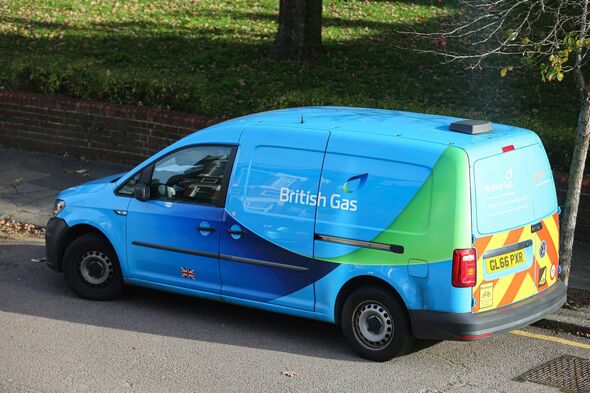
British Gas customers can save £28 per month on their energy bills after removing a daily charge.
Under new Ofgem plans, energy suppliers must offer “zero standing charge” tariffs to UK households, alongside existing ones, as part of a drive to tackle ballooning energy debt.
Standing charges are a fixed daily fee that households must pay for the facility of having gas and electricity, and this is added by suppliers to your monthly bill regardless of how much energy you actually use.
Currently, the average household pays 60.99p per day for electricity and 31.66p for gas. Over the course of a whole year this adds an extra £338 per year to energy bills on average. But if households opt to switch to a zero standing charge tariff they would cut this extra cost altogether, saving around £28 per month – or an annual saving of £338.
Tens of thousands of people have called on Ofgem to axe standing charges entirely, but the regulator said those who use a lot of energy – often for medical and health reasons – would see their bills rise significantly.
As such, Ofgem has instead proposed that all energy suppliers offer low or zero standing charge tariffs to households, alongside existing tariffs, and these would be controlled by the price cap.
The regulator said it is important that households have a choice of tariff and that the option to switch to a low or zero standing charge one would be in place for winter 2025/26, with a consultation on the proposals due to launch early next year.
Standing charges disproportionately affect households that use less energy as the fixed cost accounts for a higher proportion of their overall bill, but by introducing low or zero standing charge tariffs low-energy users would benefit, as their costs would move to the unit rate instead.
Higher energy users would be unlikely to save anything if they switched but for those who don’t use much electricity or gas, the higher price per unit would be offset by the loss of the standing charge meaning those users would save £28 per month, or £338 a year, against a standard tariff.
From January 1, average standing charges will reduce slightly to 60.7p per day for electricity and 31.65p per day for gas. Some suppliers already offer low or no standing charge tariffs at all. But while these tariffs are at least 10% below the price cap they have a higher unit rate so they are more likely to benefit customers who use less energy.
Tim Jarvis, director general of markets at Ofgem, said: “We know that many households continue to struggle with bills after the events of the energy crisis, which is why earlier this year, we took steps to consider all the issues around affordability and debt – including the impact of the standing charge.
“Many people feel very strongly that standing charges are unfair and prevent them from being able to manage their bills effectively. We want to give consumers the ability to make the choice that’s right for them without putting any one group of consumers at a disadvantage. And by having a zero standing charge tariff, we would create that choice for everyone.”
Martin Lewis, founder of MoneySavingExpert.com, said the best option would be to slash standing charges within the price cap but this would require government support for vulnerable high energy users.
He said: “Standing charges are a £338-a-year poll tax on energy bills, a moral hazard disincentivising lower users from cutting their bills. They also punish customers that only use gas for central heating in winter, many of whom are elderly, by making them pay for every day in summer. It’s by far the biggest single subject of complaint I get from the public about energy bills.
“The best outcome would be to slash standing charges within the Price Cap, yet as that’d mean the cost of each unit of energy would need to increase, it’d require the Government to put in special support for vulnerable high energy users – such as those charging electric wheelchairs, or those with illnesses that require a very warm home. That hasn’t happened (yet?).
“The problem with presenting a choice of price caps is many vulnerable people won’t make that choice. So I will be making representation to Ofgem to ensure firms are mandated to default lower-use price cap customers on to the no standing charge tariff – or at least do that for those on the Priority Services Register.”
















